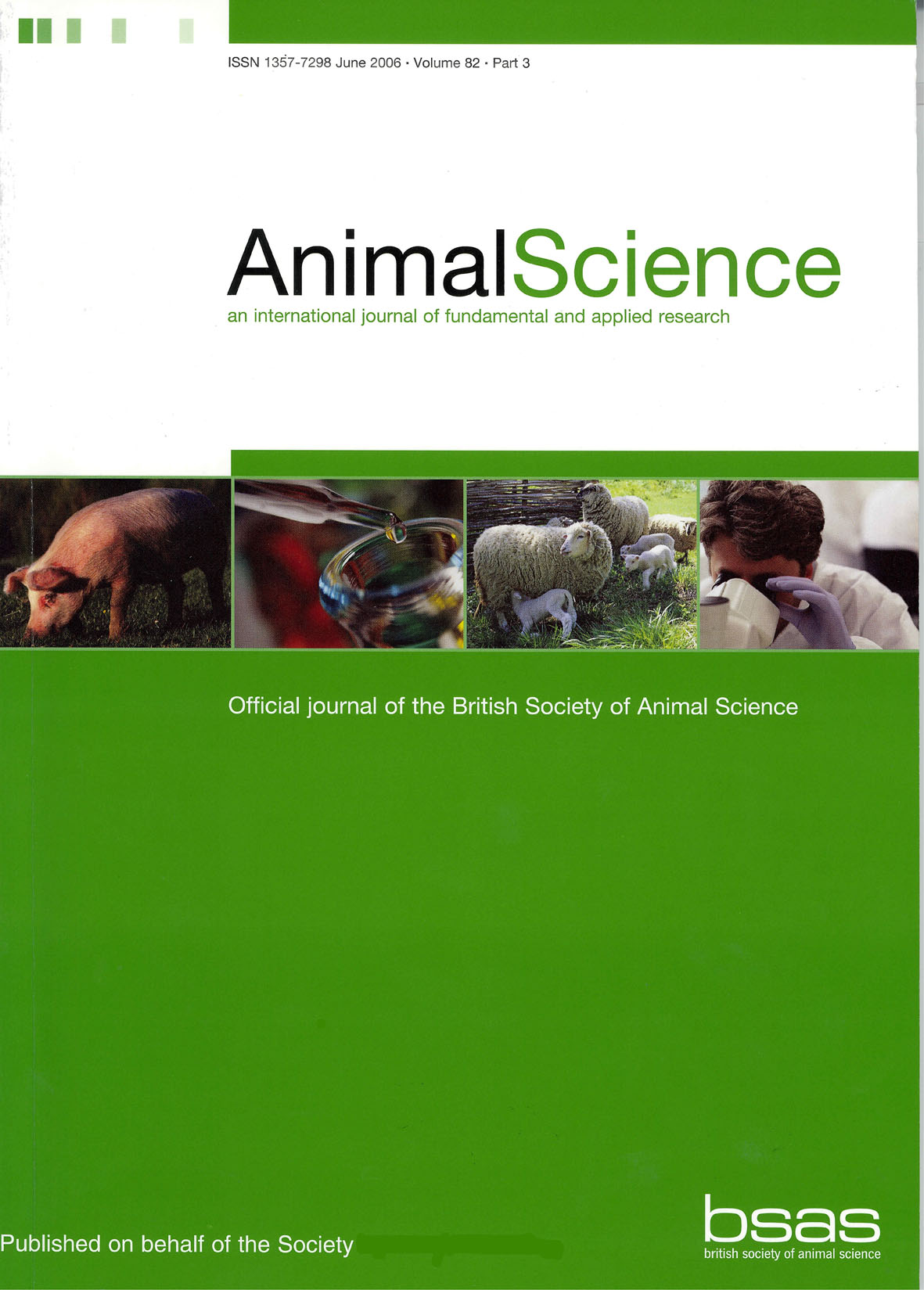Article contents
The effects of concentrate energy source on the milk production of dairy cows given a grass silage-based diet
Published online by Cambridge University Press: 02 September 2010
Abstract
Sixteen Finnish Ayrshire cows were used in a four period cyclic change-over experiment to evaluate eight concentrate supplements in a 2 × 2 × 2 factorial arrangement. Two concentrate energy sources (starchy and fibrous) were used, each given with two levels (0 and 180 g/kg on a dry-matter (DM) basis) ofrapeseed meal (RSM) and two levels (0 and 180g/kg on DM basis) of wet distillers' solubles (WDS). The starchy concentrate (S) comprised rolled barley and oats (1:1). For the cows given the fibrous concentrate (F), 600 g/kg of the grain mixture was replaced with a mixture of fibrous by-products. Grass silage was offered ad libitum and the supplements offered at a rate of 9 kg/day (fresh weight).
The cows offered F supplements consumed more silage DM than those offered S supplements (P < 0·01) but the difference in the total DM intake was smaller. The cows given S supplements produced slightly more milk than those given F supplement (26·5 v. 25·9 kg/day) but no differences were observed in the yield of milk constituents between the energy supplements. Replacing starch with fibre in the concentrate had no effect on the apparent digestibility of organic matter but tended to increase that of neutral-detergent fibre.
Including RSM in the supplement increased total DM intake (P<0·05) and led to increases in the yield of milk and milk constituents (P < 0·001 and P < 0·01). Diet apparent digestibility was not affected by RSM supplementation.
There were no significant interactions between concentrate energy source and RSM supplementation. Including WDS in the diet had no effect on food intake. Production responses to WDS supplementation varied with the concentrate energy source. WDS increased (at least P< 0·05) milk yield (1·0 kg/day) and the yields of fat (76 g/day) and protein (48 g/day) when given with the starchy concentrate. With the fibrous concentrate WDS had no effect on milk and protein yield, and decreased fat yield by 52 g/day (P < 0·05). The positive responses in the yields of milk fat and protein to RSM and WDS supplementation were almost additive with the starchy concentrate. Inclusion of WDS in the diet increased the apparent digestibility of organic matter and gross energy.
- Type
- Research Article
- Information
- Copyright
- Copyright © British Society of Animal Science 1995
References
- 19
- Cited by


